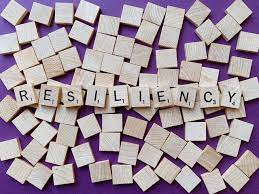We are in a cultural era devoted to the cultivation of happiness.
The website Brightside offers a list of ten movies that “show the way to happiness.” Very Well Mind offers tips on how to “cultivate a sense of happiness” by pursuing goals, enjoying the moment, and “reframing negative thoughts.” For centuries, philosophers and social scientists have tried to define and measure happiness. Since 2012, The World Happiness Report has produced an annual report on the state of happiness in the world. I recently came across the website of a psychotherapist who states that “the purpose of psychotherapy is HAPPINESS.”
To be clear, I don’t agree that the purpose of psychotherapy is happiness or should be. Rather, I would argue that life offers up a range of experiences from joyful to sad, traumatic, or tragic and that human beings are blessed with a range of emotions. Good psychotherapy ought to help us tolerate this range of lived experience and emotional variety without becoming disabled or devastated by them. Good psychotherapy should help us to become more honest and more empathic with ourselves and with others. Good psychotherapy is revolutionary, as it evokes and promotes change and growth.
Going back to the topic of happiness, given that we have so much advice about how to become happy, why are so many people suffering? Why are so many anxious and depressed? Why have so many been sidelined, even traumatized, by the pandemic?
In Manufacturing Happy Citizens: How the Science and Industry of Happiness Control our Lives, psychologist Edgar Cabanas and sociologist Eva Illouz offer a searing critique of the positive psychology, happiness science, and the economic doctrine of neoliberalism. They argue that these movements of the late 20th and early 21st centuries place the responsibility for well-being and happiness with the individual, thereby diverting attention away from larger sociological issues such as the widening income gap and the destruction of economic and social safety nets. In their words,
The meritocratic and individualistic values underlying happiness disguise the fundamental differences of class and endorse competition in unequal systems rather than promoting the reduction of economic inequality.
Cabanas, E. & Illouz, E. (2019). Manufacturing Happy Citizens: How the Science and Industry of Happiness Control our Lives. https://doi.org/10.1177/1749975520922170
Moreover, they explain that the happiness industry offers questionable evidence-based theory that our happiness is not related to our economic well-being and that individuals can choose to be happy, if they just adopt the proper psychological stance.
How has this pervasive culture of happiness, along with the doctrine that we can choose our happiness affected us?
In our pursuit of happiness, perhaps we have failed to attend to many of the other feeling states that make up the richness of our emotional lives and that are, frankly, unavoidable in life. Perhaps we have forgone opportunities to build the ability to tolerate difficult emotional states, to move through suffering and difficulty with presence and grace. Perhaps we are inadvertently pressuring our children to be happy and, in doing so, making them anxious and depressed, as they have not learned themselves to manage their own feelings of frustration, anger, and shame.
My goal as a psychotherapist is not to help people become happy but rather to help them develop the ability to tolerate a range of emotional states, including the difficult ones. Indeed, I have found that, paradoxically, the better we are able to tolerate the difficult emotions, the more content, dare I say, happy, we feel. Relational psychoanalytic theory stresses that the only way we can build this ability to endure the full range of emotions is to do it together, in relationship or community with others.
Attachment theory teaches that human beings are biologically and psychologically wired for relationships. Initially, we rely on our caregivers to help us regulate our feelings. This is done through literal holding—as when a parent picks up and swaddles a crying baby. And it is done through emotional holding, as when a mother takes in her baby’s distress, returning it to the baby in a manageable form. In being with one another with our feelings, we develop the capacity to mutually regulate emotional states. This is, no doubt, closely related to our capacity for empathy.
I recently came across the work of psychologist Becky Kennedy, profiled in a New York Times Magazine piece, “Dr. Becky Doesn’t Think the Goal of Parenting is to Make Your Kid Happy.” Kennedy argues that parents who move quickly to alleviate their children’s distress or frustration—to make them happy all the time—deprive their children of the vital capacity to tolerate life’s inevitable frustrations. Moreover, she adds, “Anybody who had a childhood in which happiness was the goal would be predestined for a lifetime of anxiety — life is full of distress!” Anxiety results when we feel unable to manage the challenges we face and when we feel that we need to be something that we are not. For instance, how do we manage the pressure to feel happy—the idea that we should be able to choose to be happy at any time—when we are facing genuinely distressing or even tragic and traumatic circumstances?
Kennedy advises parents to be present with their children in their frustration. This is no easy task. Empathic parents sitting with their children’s difficult feelings are experiencing those feelings themselves, and it is natural to find ways to defend against or disavow such feelings. But when we can resist the temptation to escape from difficulty and rather to lean into it, we can be present with our own and with our children’s feelings. And in that presence, we offer genuine relationship and community. And in that relationship we slowly build and develop the internal psychological structures to manage life’s difficulties. In layman’s terms, this is resilience.

